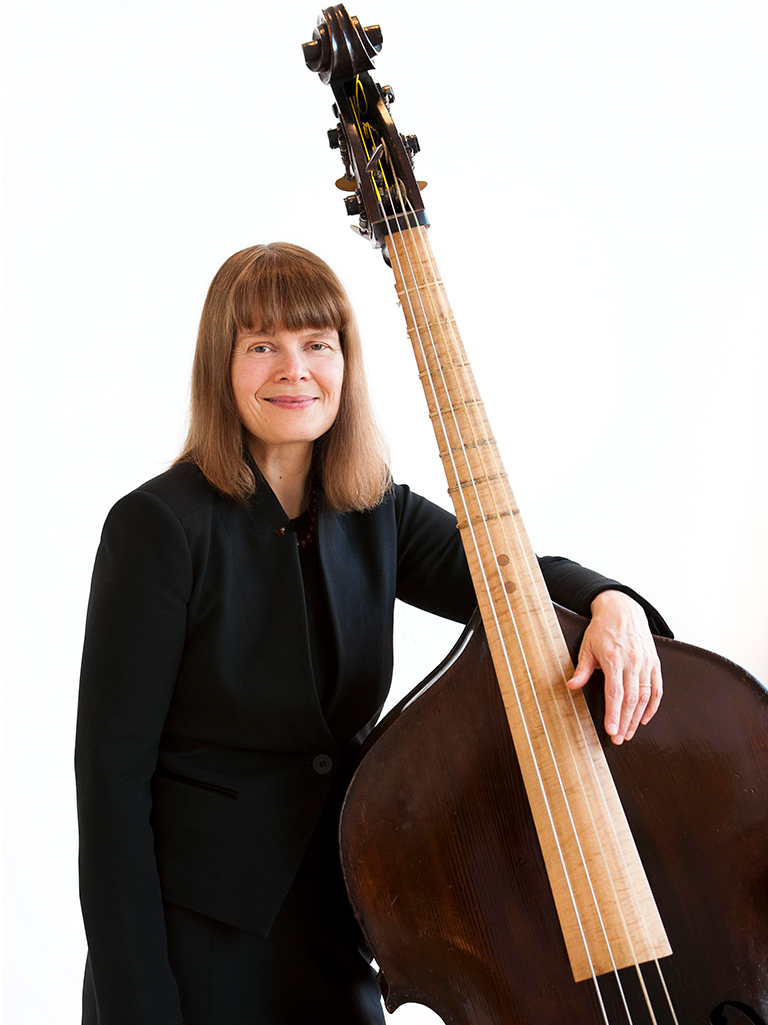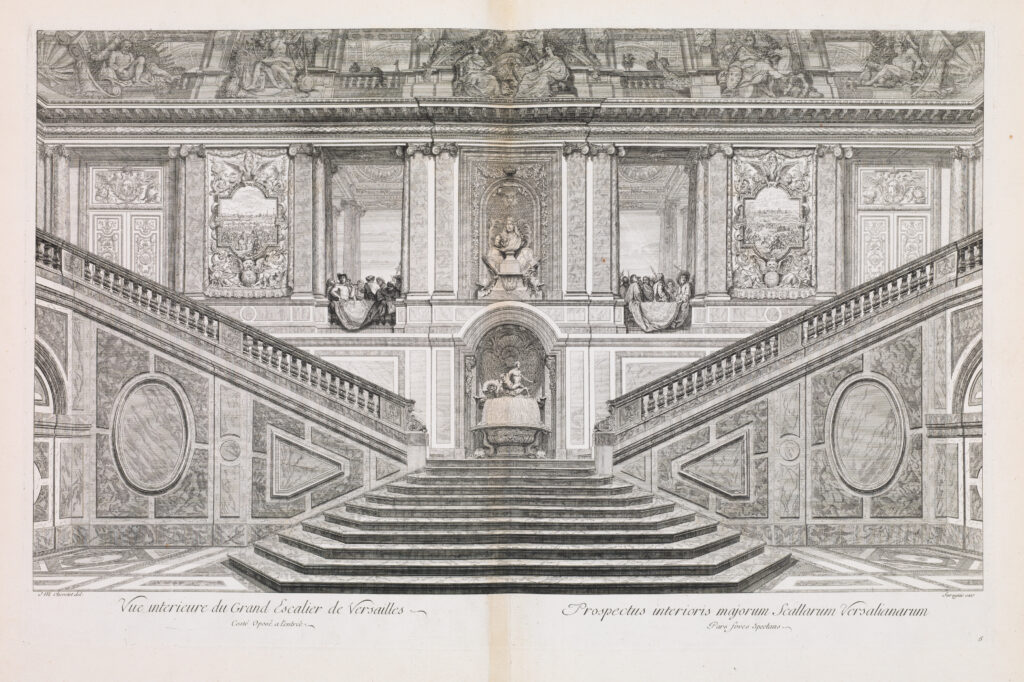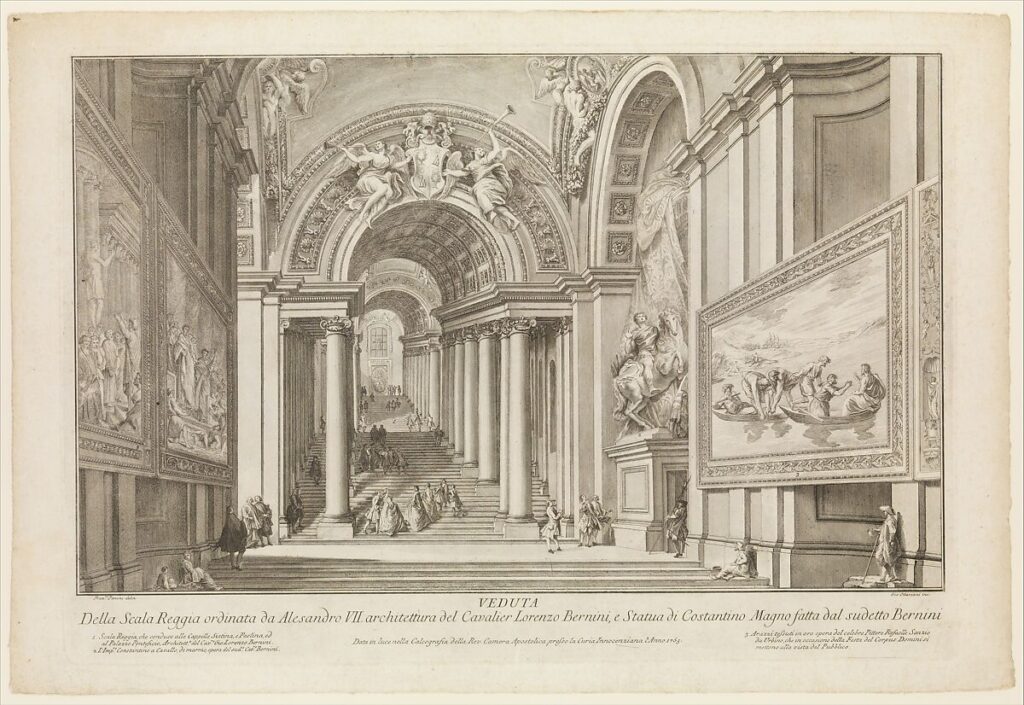Tafelmusik Baroque Orchestra
Jonathan Woody, narrator & vocal soloist
Created by Alison Mackay
Directed by Julia Wedman
Video projections by Laura Warden
Lighting design by Glenn Davidson
Live performances:
March 22–24, 2024 at Jeanne Lamon Hall, Trinity-St. Paul’s Centre
Image credits are available here.
Program
GEORGE FRIDERIC HANDEL
Sinfonia, from Parnasso in festa
JEAN-BAPTISTE LULLY
March, from Phaëton
March for the Turkish Ceremony, from Le bourgeois gentilhomme
Ouverture, from Phaëton
Chaconne de Galatée, from Acis & Galatée
TRADITIONAL
Frost Fair Ballad
HENRY PURCELL
The Frost Scene, from King Arthur
Triumphing Dance, from Dido & Aeneas
Slow Air, from Distress’d Innocence
Hornpipe on a ground, from The Married Beau
GEORGE FRIDERIC HANDEL
Air “Leave me, loathsome light,” from Semele
Rigaudon – Aria – Rondeau, from Ariodante
Aria “Si parli ancor di trionfar,” from Parnasso in festa
INTERMISSION
ARCANGELO CORELLI
Adagio – Allegro from Concerto grosso op. 6, no 4
JOHANN JOSEPH FUX
Ouverture
JOHANN SEBASTIAN BACH
Allemande, from French Suite no. 5
ANTONIO VIVALDI
Allegro, from Concerto for violin in D Major,
RV 229
GIOVANNI BENEDETTO PLATTI
Adagio, from Cello Sonata in D Major
Allegro, from Cello Concerto in D Major*
*From the music collection of Graf Paul von Schönborn-Weisentheid, performed with permission.
JONATHAN WOODY
The Unbounded Soul (world premiere)
I. The Descent
II. The Passage
III. Imagination

Alison Mackay
Creator
Alison Mackay played violone and double bass with Tafelmusik from 1979–2019, and has remained active in the creation of multi-disciplinary and cross-cultural programming for the orchestra. A number of her projects, which include The Four Seasons, a Cycle of the Sun; The Galileo Project; House of Dreams; and Tales of Two Cities: The Leipzig-Damascus Coffee House have been made into feature documentary films and have toured extensively around the world. In 2006, her children’s adventure, The Quest for Arundo Donax, was awarded the JUNO Award for Children’s Recording of the Year. Under her leadership, Tafelmusik has sponsored two city-wide arts festivals: the 2005 Metamorphosis Festival was a presentation of music, art, dance, film, and theatre inspired by the stories in Ovid’s Metamorphoses, and the 2008 Sacred Spaces, Sacred Circles Festival was a celebration of architecture and arts in the worship spaces of many cultures in the city of Toronto. She is the recipient of the 2013 Betty Webster Award for her contribution to orchestral life in Canada.

Jonathan Woody
Narrator, singer & composer
American bass-baritone Jonathan Woody is a versatile and dynamic musician who maintains an active schedule as a performer and composer across North America. Cited for singing “with resonance and clarity” (Washington Post), he appears regularly as soloist with historically informed orchestras. In the 2021/22 season, he served as Artistic Advisor for the Portland Baroque Orchestra. An accomplished chamber musician, Woody often performs as a member of the Choir of Trinity Wall Street, and has recently performed in collaboration with Kaleidoscope Ensemble and TENET Vocal Artists, among others. Jonathan has participated in premiere performances of works by leading composers.
Woody’s compositional voice blends 17th- and 18th-century inspiration with the minimalism and socially conscious subject matter of today.
Jonathan is committed to racial equity in the field of the performing arts, and currently serves on Early Music America’s Task Force for Inclusion, Diversity, Equity, and Access.
Presently living on traditional Lenape lands now known as Brooklyn, NY, he holds degrees from McGill University and the University of Maryland, College Park.
Tafelmusik Baroque Orchestra
Violin I
Julia Wedman, Geneviève Gilardeau, Christopher Verrette, Cristina Zacharias
Violin II
Johanna Novom, Patricia Ahern, Chloe Fedor
Viola
Brandon Chui, Patrick G. Jordan
Violoncello*
Keiran Campbell, Michael Unterman
Double Bass
Pippa Macmillan
Oboe
John Abberger, Gaia Saetermoe-Howard
Bassoon
Dominic Teresi
Lute/Guitar
Lucas Harris
Harpsichord
Charlotte Nediger
Access full bios for core orchestra members at tafelmusik.org/orchestra
*Cello chair generously endowed by the Horst Dantz and Don Quick Fund
TEXTS & TRANSLATIONS
Frost Fair Ballad
All you who are merchants who peddle your wares,
And look for the boats at the waterman’s stairs.
Come listen a while though the weather be cold
In pockets and plackets your hands you may hold.
For since Christmas last
There’s been such a frost
The ferries are frozen in ice to our cost!
We look for some payment in want of our fares that we
lost at Black Friars and Billingsgate Stairs.
Below Temple Stairs in the ice and the snow
Where once with our ferries we lately did row,
The river is changed to a freezing cold fair
With brandy and hot roasted codlins to share.
Come sit by the fire
With friendly desire
In tents and in booths find all that you require
The rabble in sledges run giddily round while the
Frost-fingered fiddler plays Packington’s Pound.
The Rotterdam Dutchman and all of his mates,
They fly down the ice on their sharp-bladed skates.
But while you are watching, pray look to your purse,
I give you fair warning for better or worse.
For oft it is said
When daylight has fled,
The cut-purse sends customers empty to bed!
Don’t go there at Midnight, pray take my advice, for some
Slippery things can be done on the ice!
Purcell: The Frost Scene from King Arthur
(John Dryden, 1684)
COLD GENIUS
What power art thou, who from below
Hast made me rise unwillingly and slow
From beds of everlasting snow?
See’st thou not how stiff and wondrous old,
Far unfit to bear the bitter cold,
I can scarcely move or draw my breath?
Let me, let me freeze again to death.
(Cupid enters)
Great Love, I know thee now:
Eldest of the gods art thou.
Heav’n and earth by thee were made.
Human nature is thy creature,
Ev’rywhere thou art obey’d.
Handel “Leave me, loathsome light,” from Semele
(William Congreve, 1710)
Leave me, loathsome light,
Receive me, silent night!
Handel: “Si parli ancor,” from Parnasso in festa
(Anonymous librettist)
Si parli ancor di trionfar
Gloria ed amor iran del par.
Il lor’ destin può publicar,
Che i sposi eccelsi vuol bear;
E già prefisso col là sù,
Che li accompagni sol virtù.
Prole d’eroi sapranno dar
E tutto ’l mondo consolar.
Si parli ancor di trionfar,
Gloria ed amor’ iran’ del par.
Let’s speak of their triumphs,
and of their glory and their love.
I’ll to the world relate
the blessings reserved for them by fate;
In its eternal book we see
that virtue will always accompany them.
From them will follow a race of heroes
to console the entire world.
Let’s speak of their triumphs,
and of their glory and their love.
Jonathan Woody: The Unbounded Soul
(From On Imagination, by Phillis Wheatley, 1773)
Imagination! who can sing thy force?
Or who describe the swiftness of thy course?
Soaring through air to find the bright abode,
Th’empyreal palace of the thund’ ring God,
We on thy pinions can surpass the wind,
And leave the rolling universe behind:
From star to star the mental optics rove,
Measure the skies, and range the realms above.
There in one view we grasp the mighty whole,
Or with new worlds amaze th’ unbounded soul.
Program Notes
by Alison Mackay
In the seventh decade of the seventeenth century, two powerful political rivals in Paris and Rome met with their favourite architects to plan the construction of two new theatrical projects. These were not playhouses for the works of Molière or the operas of Cavalli. They were lavish staircases: King Louis XIV of France and Pope Alexander VII understood the high drama inherent in ceremonial arrivals and departures. The Ambassador’s Staircase at Versailles and the Scala Regia, created by Bernini for the interior entrance to the Vatican, became famous backdrops for diplomatic visits, religious ceremonies, and performances of music.

(Metropolitan Museum of Art: Rogers Fund, 1918)

(Metropolitan Museum of Art: Harris Brisbane Dick Fund, 1924)
Exploring the social context of staircases in the time of Tafelmusik’s repertoire takes us to fascinating musical milieus from which the works on our concert are drawn. At the Dorset Garden Theatre in London, hidden instrumentalists played beneath the stage to accompany a singer rising on stairs through a trap door to make a magical entrance in Henry Purcell’s King Arthur.
Forty years later at Covent Garden Opera House, the oboists and bassoonists were instructed to play from the top of an impressive staircase specially constructed for the third act of Handel’s Ariodante.
Images of the modest staircases that Bach and Vivaldi climbed each day at music schools in Leipzig and Venice may still be seen, as can the depiction of the composer Giovanni Benedetto Platti and his court musicians on the enormous staircase of the bishop’s palace in Würzburg, which took 45 minutes for visitors in wide skirts and high heels to climb.
Running as a thread through the concert is the story of Apollo and the Muses, who lived on Mount Parnassus at the top of a thousand steps carved into sheer rock above the ancient stones of Delphi. The climb to Parnassus has long represented the pilgrimage of artists seeking inspiration and striving for excellence, and the old story captured the imagination of many baroque painters and composers. Seventeenth-century operas often began with an invocation to the muses, and images of the nine sisters appeared on many of the staircases pictured in our performance.
The concert begins with a sinfonia from Handel’s opera Parnasso in festa, composed in 1734 to celebrate the wedding of Princess Anne, the eldest daughter of George II. Handel enjoyed a warm relationship with the princess, who had been his harpsichord student and was a great supporter of his theatre projects. The opera, which used a single piece of scenery depicting the Muses on Parnassus, was so enthusiastically received that it was revived by Handel in three subsequent opera seasons.
Across the English Channel, a 60-year-old French opera was performed in January of 1749 in a revival organized by the Marquise de Pompadour, mistress of Louis XV, successor in 1715 to his great-grandfather, Louis XIV. The performance of Jean-Baptiste Lully’s Acis et Galatée took place on an elaborate temporary stage erected on the east and west steps of the Ambassador’s Staircase. Historical records of this occasion offer a rare treasure trove of corroborating details. Court chronicles reveal the repertoire and the cast, which included Madame de Pompadour herself in the role of the water nymph Galatea. The diary of the Duc de Luynes, who was in the audience, reports that the orchestra, which included the nephew of the king playing the bassoon, was positioned in a area over the bottom of the east steps, and that the balance was perfect: the singers could be always be clearly heard above the orchestra. Palace account books reveal the materials and textiles used to construct and decorate the theatre, which had to be quickly collapsible for ceremonies on the staircase the following day.
A rare gouache painting of the occasion by Charles-Nicolas Cochin in the collection of the National Gallery of Canada is the only known depiction of a theatrical performance of this kind at Versailles in the late 1740s. It portrays Madame de Pompadour in her costume, as well as a detailed rendering of the other singers, the set, the audience, and the orchestra.
Yet another layer of detail is offered by the Versailles book of props and costumes recorded by the wardrobe mistress, Madame Schneider. She describes the colours and fabrics of Galatea’s costume and reveals the fact that many of the pearls sewn onto the dress as embellishments were rented. A chaconne from the second act of the opera became known as Chaconne de Galatée: it makes a fitting accompaniment for the striking image of Galatea in Madame Schneider’s beautiful costume, surrounded by the magnificence of the staircase theatre.
High above the Ambassador’s Staircase were paintings of Apollo and the Muses on Mount Parnassus. These characters were not only found in royal palaces—they also infiltrated popular culture, even appearing in the texts of English broadside ballads printed on single sheets of newsprint and sold to the public for a penny.
Apollo and the Muses nine do take it in no scorn
There’s no such stuff to pass the time as the little barley-corne!
Ballad texts contained vivid details about social customs and current events in early modern London, and their portrayals of the Great Frost Fair of 1683, when tents and booths stretched across the frozen Thames from Temple Stairs to the South Bank, supplement the information provided by paintings and diary entries from the time.
Popular music played a large role in everyday life along the river and it was a prominent feature of the Frost Fair, which had a special music tent. Accounts of the fair describe the various activities which took place on the frozen river, including dancing and fiddling, and a printing press at the bottom of Temple Stairs producing customized souvenir cards “printed on the ice.”
Broadsheets contained the texts of ballads but not the music. A waterman’s ballad about the Frost Fair at Temple Stairs is marked “To the tune of Packington’s Pound,” a wonderful melody dating back to the time of Elizabeth I. It was the most popular ballad tune in England before 1700 and was arranged in many 17th-century collections for lute or keyboard.
We are thrilled to have the distinguished bass-baritone Jonathan Woody playing a central role in Staircases as narrator, singer, and composer. Jonathan’s art is deeply rooted in the beauties of European baroque music, while his compositional practice explores both the joys and the pain of our historical inheritance, including the difficult truth that some of our favourite works of 17th- and 18th-century music, art, and architecture were partly paid for from the proceeds of slavery.
Towards the end of the concert our musical journey will arrive at the west coast of Ghana, where thousands of enslaved people had their final contact with the continent of Africa on a staircase leading down to English ships from a Door of No Return.
The Unbounded Soul, Jonathan Woody’s three-movement work created especially for this concert, reflects on the tragedy of abduction and enslavement and the horror experienced on the crossing to America.
It takes its title from the fourth stanza of “On Imagination” by the 18th-century poet Phillis Wheatley. Born in West Africa in 1753, she was sold into slavery and brought to America at the age of seven. A passionate abolitionist and promoter of education for all, she often drew on her vast knowledge of classical literature, invoking the Muses to aid her in her lifelong quest to use the power of poetry to change minds and hearts. Her brilliant expression of creativity’s potential for freeing the human spirit still speaks to us today and soars in the music of a beautiful chaconne—the uplifting final movement of The Unbounded Soul.
| We are grateful to beloved member of the Tafelmusik family, Prof. John Percy, for his astronomical advice, and to Canadian astrophotographer Stuart Heggie, whose legendary photos of the night sky have been a highlight of several Tafelmusik projects. On the night of February 12, 2024, Stuart captured the beautiful photo of the Pleiades to supply the perfect image for Handel’s aria “Leave me loathsome light.” Thanks are also due to Raha Javanfar for supplying the projected frames from her earlier Tafelmusik designs, and to Ivars Taurins for his enthusiastic advice about images. |
